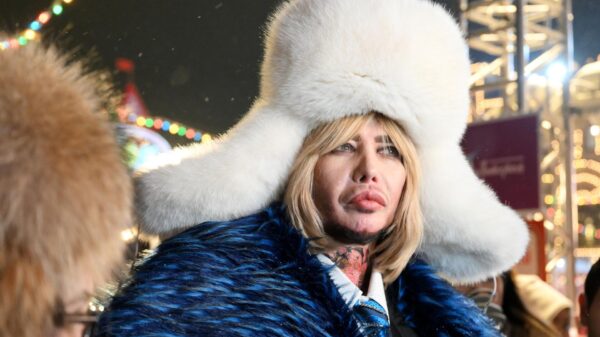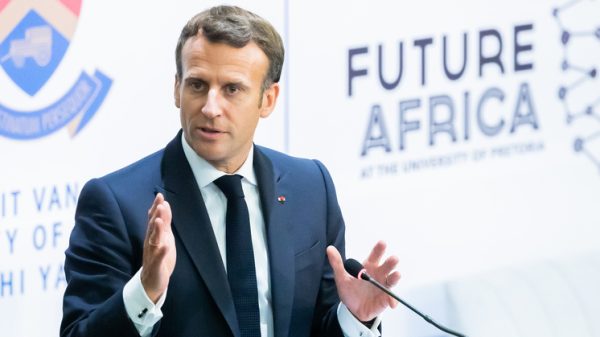 Sacha Baron Cohen in a scene from Ali G Indahouse
Sacha Baron Cohen in a scene from Ali G Indahouse
Dominic English, series editor and producer of 11 O'Clock, recalls that At the height of Ali G's popularity, Sacha Baron Cohen — the real-life alter ego of the main man of Staines Massiv — was drinking with Madonna. “Someone said: “Did you hear that Sasha was in the Cow with Madonna and Guy Ritchie?” English laughs. «Everyone's like, 'What the fuck?'
Just a few years earlier, Baron Cohen had sampled Ali G's character prototype — a posh rapper named MC Jocelyn Cheadle-Home — by taking him out for a walk: talking on the street with a group of wannabe gangsta skaters; stormed the tour bus and announced, “Hey, check it out. I'm here and this is my bus. Boyakasha»; and was kicked out of a pub for breaking dancing.
Baron Cohen later described the adrenaline rush of discovering this new form of comedy. “Perhaps it existed and other people did it,” he told Rolling Stone magazine. «But we never understood that before — the idea of bringing a comic character into a real situation.» word of mouth (word of mouth mostly people giving the impression of «Ait!» and «Boyakash» or snapping fingers at each other) to a cultural phenomenon. According to Princes William and Harry, even the Queen Mother snapped her fingers and said «Respek» after Christmas dinner at Sandringham.
In 2000, Ali G launched his own series, The Da Ali G Show, and starred in a music video for Madonna's dance music (hence, presumably, Baron Cohen in a pub with Madge). By 2002, he starred in his own film Ali G Indahouse and released the single Me Julie with Shaggy.

Today, Sacha Baron Cohen is a dramatic actor who has credited the Netflix thriller The Spy, Aaron Sorkin's The Trial of the Chicago Seven, and David O Russell's upcoming drama Super Toys. But he hasn't given up on comedy: In 2020, he stormed Mike Pence's speech in Donald Trump's full prosthetics and released Borat: The Follow-up Movie, which saw Borat return to America with his youngest daughter. But now his greatest creation is back, and Baron Cohen, now 51, is reportedly planning to bring Ali G back with a live tour.
This might be a good idea. The raw comic brilliance of Ali G's original parodies of 11 O'clock, in which Ali interviewed establishment figures, industry gurus, and common brains, serves as a hilarious and oddly insightful satire. Watch Ali G discuss crime and punishment with Judge Pickles: «Can you kill someone if they call your mom a whore?»
Before Ali G, Baron Cohen had worked in television and had already acted in various guises. The late comedy producer Harry Thompson saw an audition tape of an early incarnation of Borat and hired Baron Cohen for The 11 O'clock Show. Originally called «Yoof W—er» — a deliberate parody of the youth television movement — Ali G was created by producer and former Channel 4 editor Andrew Newman (Baron Cohen and Newman still run the production company together). /p>  Sacha Baron Cohen in Borat's Follow-up Credit: Amazon Studios
Sacha Baron Cohen in Borat's Follow-up Credit: Amazon Studios
Ultimately, Ali G will look ridiculous in his tracksuits and du-rag headwear. Former Education Secretary Rhodes Boyson described it as «a big yellow balloon». But the setup was plausible. «It's entirely possible that the well-meaning Channel 4 will give this would-be stroke idiot rapper a chance on TV to do a teen political report,» Newman explained.
The character and his West Staines Massiv crew were partly inspired by Tim Westwood, a spirited, decidedly white hip-hop DJ (and the son of a bishop) who speaks with a snobbish black British accent. «Sasha was a big fan — like me — of early hip-hop and listened to the Tim Westwood show,» Newman says. «People who called on the radio said things like, 'Hello to Sainsbury's Car Park Massive.' It was like you were pretending to be in South Central but you were actually in Iver Heath.»
Ali G was later criticized for making fun of black culture and stereotypes. Comedian Felix Dexter said he thought «it allows the liberal middle class to laugh at this culture in a safe context where they can keep their sense of political correctness.»
Newman says the intention has always been to send misguided middle-class white kids. «He wasn't pretending to be a black guy,» Newman says. «He pretended to be a white guy who acted cooler than he really was while living in Staines with his parents.»
 Ali G's muse: Tim Westwood By: Martin Pope
Ali G's muse: Tim Westwood By: Martin Pope
Writing for The Guardian in 1999, Harry Thompson praised himself for coming up with the name Ali G and suggesting the character be interviewed by members of the establishment. Pushing the boundaries of political correctness with edgy and sometimes savage humor, 11 O'clock was a major proponent of what Harry Thompson called «TV cheating,» the art of playing with unsuspecting targets.
< p>Chris Morris first used it in «Copper Eye» before it became a comedic fashion trend in «Happy TV Trigger», «My New Best Friend» and «Steelballs». As Thompson said of Hoax TV's appeal, «Sit back and let celebrities or members of the public speak for themselves, like Chris Morris does, and they'll expose their deepest prejudices and stupidities.»
Elsewhere. at The 11 O'Clock Show, Ian Lee took to the streets to make vox-pops that trespass; Daisy Donovan threw dirty double entenders in interviews with politicians; and Ricky Gervais conducted ridiculous surveys with the public.
After Brass Eye made fools of celebrities and politicians, the Independent Television Commission changed its rules to require comedy shows to be more explicit about the nature of their contributions. That being said, Andrew Newman also credits Channel 4 lawyer Prash Naik with Ali G's creation, ensuring their backs are always covered with precise language. «He agreed to let us tell people that this is 'a new late-night topical show that will try to make serious issues interesting for young people.'
Speaking on Twitch in 2020, Ian Lee recalled a similar phrasing they used to trap interviewees: «A late-night topical comedy show… [we] were sort of mumbling the word 'comedy' with an emphasis on 'relevant'.»
Ali G's early interviews were compiled by a small group of writers and producers, including Dan Mather (who directed the Home Alone remake), Andrew Newman and Anthony Hines, and directed by James Bobin, future director of Flight. Conchords, Muppets and Disney's Alice Through the Looking Glass.
View this Instagram post
#DumbandDumber
A post posted by Sacha Baron Cohen (@sachabaroncohen) on November 6, 2016 at 2:38 pm PST
Screenwriter Paul Garner calls himself a «side player» in Ali G, but remembers the process. “At the very beginning, there were two or three of us, huddled together, and came up with stupid things that he could say in these interviews,” he recalls. «We looked at their resumes, trying to find a way that would be relevant to the character or theme.»
Ali G's success depended on how committed Baron Cohen was to the character. “Before the interview, he acted like Ali G, and everyone called him Ali G,” says Andrew Newman. “He kind of became Ali G. He didn't come in as Sacha Baron Cohen and say, «Okay, I'm just going to change into Ali G!»
“There are only a certain type of performers who can do this,” says Paul Garner. “It takes a lot of nerves. It's not easy to have these pre-arranged bombs — you need this ability to rhyme what you're told back and know the character so well that you can take them to places you didn't plan on. Sasha should be given credit.»
In highlights of his original interviews, Ali G spoke to Bishop Lindsey Urwin about religion (“I can only tell you what I believe, man,” Lindsay says, turning into a prim and fashionable priest); with the head of the Arts Council, Jerry Robinson, on culture («Why is art so — sorry, French, but — shitty?»); with Professor Sue Lees on feminism (“Would you feel safe if you knew a woman was flying your plane?”); with Orange leader George Patton on Catholic-Protestant relations in Northern Ireland («Would you marry a Catholic girl? What if she was really suitable?»); and with Maj. Gen. Ken Perkins on World War II (“Have you ever thought about switching sides?”). » /> Behind the mask: Sacha Baron Cohen. Photo: AFP
“The questions were carefully planned,” recalls Dominic English. “They relied on the egos of their interlocutors and their benevolence. They gave serious interviews, and from time to time Ali G went out of the track for a couple of minutes. The producers brought it back and continued to ask reasonable questions. At the end of the day, they edited them down to a few minutes and threw out everything reasonable. Sometimes I look back and think: “Well, it was just someone who was struggling to answer some questions from a fool!”
Paul Garner recalls Major General Perkins' interview as one of his favorites — a perfect example of the «street urchin vs. fool» dynamic. «He fought for his country and he's probably looking at this idiot and thinking, 'Is this really the man I fought for?' If Channel 4 shows this on TV, then what are the others…?!”
In his best original sketches, Ali G came face to face with a Labor MP. and ardent socialist Tony Benn. Ali asked questions about the welfare state («Is it because it's fair?»); compared the strikes of workers with pulling out the sick; and defended the right to idle laziness (“Everyone talks about the right to work … but what about the right not to work?”).
Cheerfully, Benn took Ali G on a mission. At one point, when Benn scolded Ali G for sexist remarks, Baron Cohen's normally impenetrable veneer began to crack as he tried to hold back his laughter.
“Tony Benn walked around the block several times,” says Dominic English. He could stand up for himself by answering some stupid questions. I think he's been asked stupid questions for half his life. But I remember that they treated Tony Benn badly. Not because they were socialists, but because he was so amazing.”
Tony Benn's interview was broadcast on April 29, 1999. By then, Andrew Newman had become a commissioned editor for Channel 4 and was on the other side of the editorial process. “I became the guy who said: “I don’t know if you can say that!” They're all like, «Oh, what happened to you? You used to be the guy who said everything was fine!” There was little internal debate about whether Benn's interview should be published. Did he get the better of Ali G? It was a different dynamic, but it was also funny because Ali G was revealing something different about Benn. He didn't really tolerate any nonsense.»
Writing in The Guardian the following year, Benn said he found the interrogation line offensive, but by no means suspected he had been set up. “He was very polite to me personally, and I came to the conclusion that his views were based on profound ignorance,” Benn wrote.
When the episode aired, someone warned him. “I was very angry and wrote to the production company demanding a video,” Benn said. But he found an unexpected upsurge as it attracted a new generation to Benn and his politics. «Many young people came up to me on the street or wrote to me to say how much they liked the program and how glad they were that I opposed it.» After that, Tony Benn became a fan and watched videos of Ali G, Innit with his family at Christmas.
 Ali G backstage at the Brit Awards with Best International Male Solo Artist Shaggy in 2002. Photo: AP
Ali G backstage at the Brit Awards with Best International Male Solo Artist Shaggy in 2002. Photo: AP
The 11 O'clock show has been criticized in recent years for its anti-PC humor; saying what you want under a veil of irony was in the style of comedy of the late nineties and early zero — Ricky Gervais continues to do this today. Even host Ian Lee, who put on a lot of jokes, criticized the show for its sometimes wicked humor.
But now, looking at Ali G, it's surprisingly not mean. Having painted a picture of Staines' mean streets—me, Julie, his buddy Dave, and Uncle Jamal—what's most laughable is Baron Cohen's immersion in character. Constantly confused, he is both slow-witted and razor-sharp. Ali G is the butt of his own joke. “The joke is in the idiocy of young people,” says English. “The world is complex and difficult, and these are the experts. But the idiot didn't get it. And whoever they are, they have the indulgence and patience to try to explain this to the youth.”
As a snapshot of their cultural and political moment, the interviews are also pointedly insightful. “What Ali G did comically showed the gap between the generations,” Newman says. “Most of the establishment representatives interviewed showed that they have no idea what youth is. I always felt that you were a nice or warm person, you got on well with me. Some people got really angry and didn't pay attention to Ali G, and that said something about them.» > Ali G Inda House Credit & Copyright Film Stills
English recalls that hosting The 11 O'clock Show was like «kids in the back of a bus racing down the motorway, fooling around with everyone,» but Baron Cohen's team was «laser-focused.» The 11 O'clock show produced a huge array of talent both on and off the camera, including Ian Lee, Daisy Donovan, Ricky Gervais, Mackenzie Crook, Dom Jolie, Ian Morris and Damon Beasley, but Ali G was the immediate breakout star. In 1999, he won the British Comedy Awards for «Best Newcomer» and presented an alternative Christmas message on Channel 4.
«After the first one, you could tell that it was very funny, very smart and different in tone from everything else in the series,” says Paul Garner. “It comes from the warmth and color of Ali G. They say that comedy reflects the times. Ali G was so right for the time.”
Ali G quickly switched sides. into the mainstream — even Richard Madley dressed up as Ali G in This Morning. Popularity eventually changed Ali G. By the third season of 11 O'Clock, Ali G had to travel to America to do interviews (including Donald Trump). “It became increasingly difficult to hire people who had no idea,” says Andrew Newman.
See this post on Instagram
#tbt @victoriabeckham @mariahcarey @davidbeckham
Posted by Sacha Baron Cohen (@sachabaroncohen) June 28, 2018 at 6:06 pm PT
Da Ali G Show debuted in March 2000 when he interviewed celebrities; in 2001 he interviewed David and Victoria Beckham for Comic Relief. Perhaps it was less funny when everyone was involved in the joke. By the time of his film, Ali G had become a cartoon character — funny, but without the realism of his original parodies.
English fondly remembers the «11 o'clock show» and its popularity. -away-with-it's an attitude. He says: “Was it childish? Yes. Was it unjustified? Yes. Was it unacceptable? Sometimes. It was funny? With hope. I wish there was a show that I thought was just as childish and anti-establishment.»
The 11 o'clock show is perhaps more influential than it's been credited with, if only because for the vast amount of comedic talent he produced. But all participants agree that Ali G's success depends on Sacha Baron Cohen himself. “Sasha’s genius in being Ali G turned a sketchy idea into something groundbreaking that is still being talked about years later,” Newman says. As Ali G would say, Buyakasha. Ahem.


























































Свежие комментарии